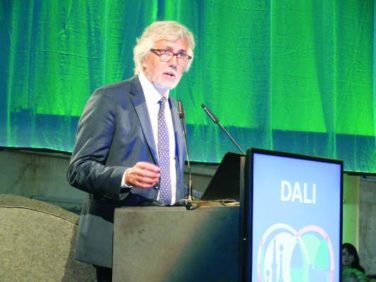Adding bevacixumab to standard first-line carboplatin-plus-paclitaxel therapy extended survival and was well tolerated in Chinese patients with advanced or recurrent nonsquamous non–small-cell lung cancer, as has already been reported in white patients, according to a report published online May 26 in the Journal of Clinical Oncology.
Recent trials have reported that adding bevacixumab prolongs survival in NSCLC, but these studies have involved primarily white patients; data concerning the agents’ efficacy in Asian populations are sparse. So researchers performed an industry-sponsored, double-blind phase III trial involving 276 Chinese adults treated at 16 hospitals across China. These participants (median age, 57 years; range, 23-75 years) were randomly assigned to receive up to six cycles of either standard carboplatin/paclitaxel chemotherapy alone (138 patients) or carboplatin/paclitaxel plus bevacixumab (138 patients) and were followed for approximately 28 months, said Dr. Caicun Zhou, director of oncology at Shanghai (China) Pulmonary Hospital and director of the Cancer Institute at Tongji University, Shanghai, and his associates.
The primary efficacy endpoint, progression-free survival, was extended with the addition of bevacixumab, with an HR of 0.40. The median survival was 9.2 months with bevacixumab and 6.5 months without it, a significant difference. The median overall survival also was significantly longer with bevacixumab (24.3 months) than without it (17.7 months). Other secondary endpoints also were improved by the addition of bevacixumab, including the objective response rate (54% vs. 26%), the disease control rate (94% vs. 89%), and the median duration of treatment response (8.0 months vs. 5.3 months).
Adverse effects were consistent with these agents’ established safety profiles, and no new safety concerns were identified. The most common adverse effects were hematologic abnormalities, GI disorders, and alopecia, and the incidence of less serious adverse effects was comparable between the two study groups. The rate of more serious adverse events was higher in the bevacixumab group (11% vs. 2%) and was largely due to hypertension and proteinuria, the investigators reported (J. Clin. Oncol. 2015 May 26 [doi:10.1200/JCO.2014.59.4424]).
“These data have confirmed that bevacixumab has clinically meaningful efficacy and an acceptable safety profile in Asian populations, as well as in global populations,” they added.
tor@frontlinemedcom.com




